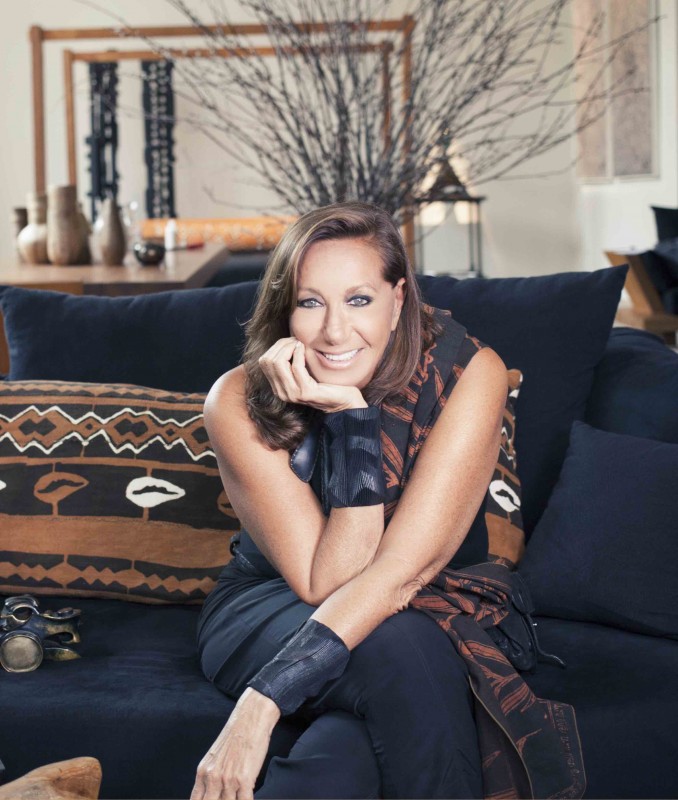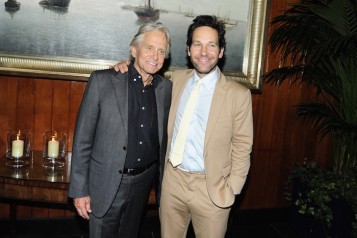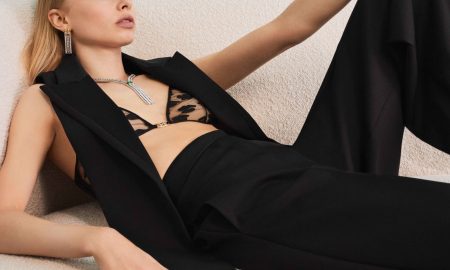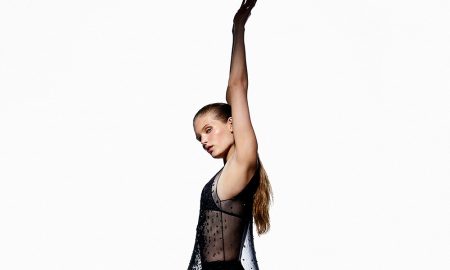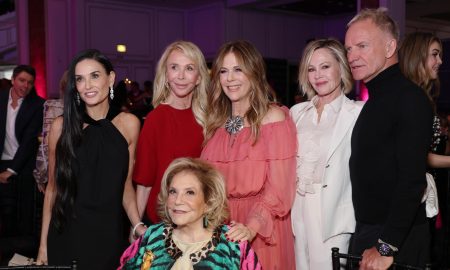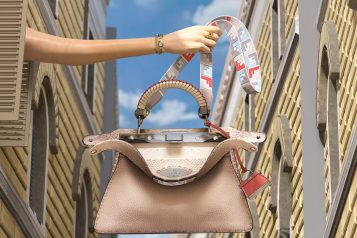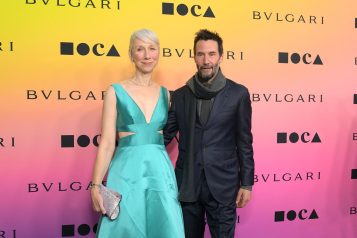Her existence is dictated by requirement and necessity. For example, her classic bodysuits came to be because she needed them for yoga. Because her father was a tailor, it was a natural evolution to design tailored pieces. As such, it was expected that her journey to Africa—which included Kenya, Rwanda, Tanzania and Ethiopia—inspired part of her summer 2018 Urban Zen collection: jumpsuits, poplin, blousy white shirts and safari jackets.
The first part of said collection that’s currently available for retail was also inspired by need—her greatest, in fact. “Comfort inspires me,” she says. “I say to people, ‘If you can’t really go out in it or sleep in it, I don’t really want to know from it. I want it to be comfortable, sensual, about you.’”
The items that are in stores now are in her favored black, heavy on pinstripes, layered kimono jackets and coats. This is the Donna Karan summer uniform, and she isn’t ashamed to admit it. This woman knows, and has known for a very, very long time, who she is. She is comfortable in her own skin, and that vibe comes across in her clothing.
“It’s not about what you’re wearing on your outside, it’s about what you’re wearing on the inside,” she notes. “When you feel good, you’re going to look good. You could wear the most gorgeous thing in the world and not feel like, ‘Okay, I’m here. I’ve arrived.’”
And then there’s the paradox of being Donna Karan, a fashion designer who, though constantly being inspired by the new (a colored rock, city lights, the beach) sticks to the same-old for her own wardrobe. For her, there is not only comfort, but comfort in consistency. “I wear the same thing every day,” she admits, noting it’s only weather that demands variation in her wardrobe. (In case you’re wondering, she touts seven easy pieces that comprise her daily/yearly attire: a great pair of jodhpur pants, a jersey shirt, a poplin shirt, coat, dress, bodysuit and a scarf.)
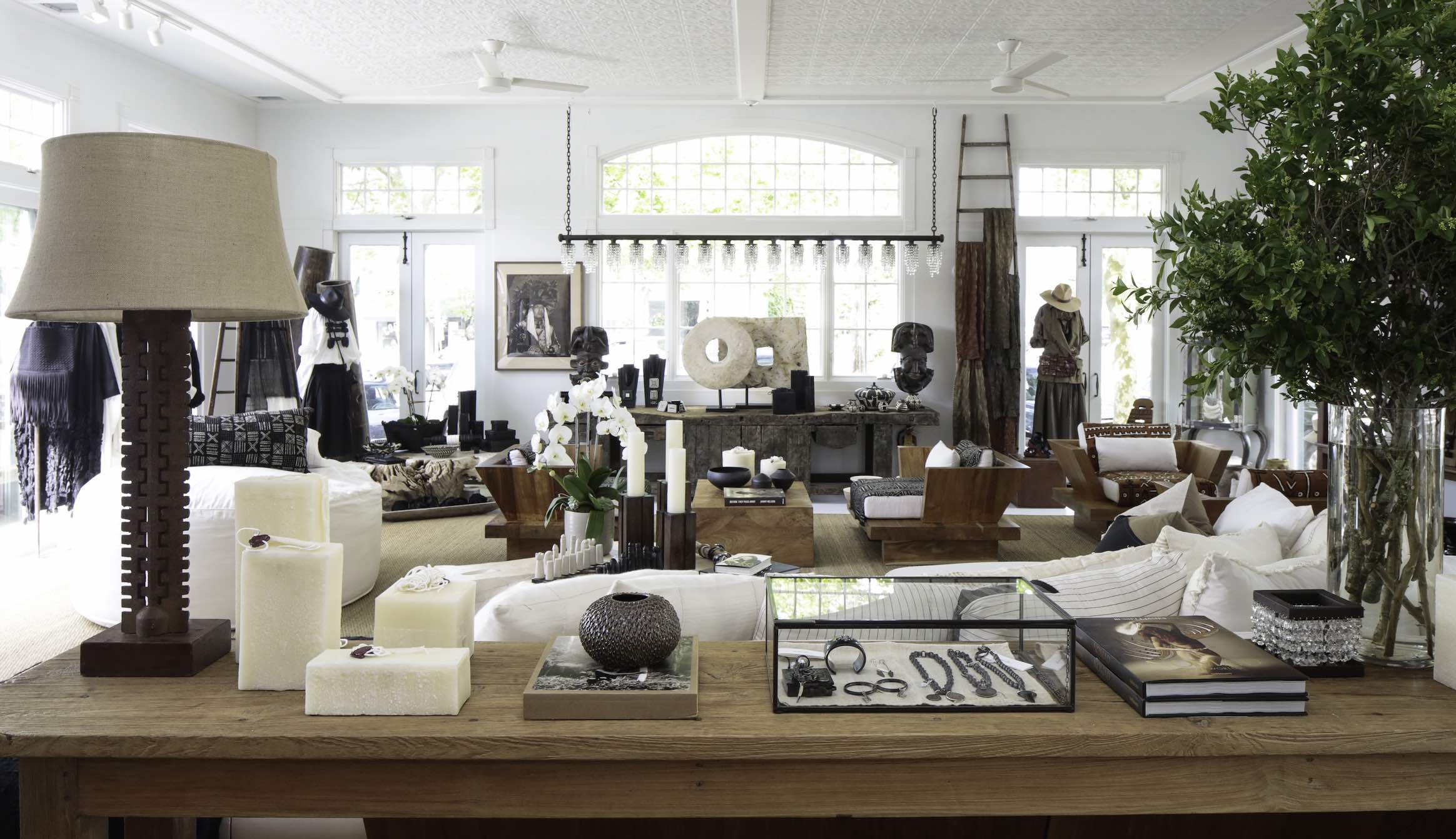
Photo Credit: Urban Zen
By that same token, her Urban Zen line was created as the ultimate transitional collection, a buy-now, wear-now line that, unlike most top brands, sells in season. Every piece is designed and made with the intention of preserving worldwide artisan cultures and seeks to integrate Old-World techniques into modern clothing. Ironically, Urban Zen was never meant to be about fashion in the first place. She launched the line in 2009 after demand necessitated it as an extension of her Urban Zen Foundation.
“[My friends would say], ‘Donna, where are the clothes?’” she recalls, then maintains, “But Urban Zen was never really about clothing.”
Its original purpose since its inception in 2007 was to raise awareness and inspire change in the areas of preservation of cultures, well-being and education. Today, that purpose remains unchanged. “I had this vision,” she says. “I’ve always been involved with foundations, but when the AIDS epidemic broke out about 40 years ago, I started putting myself out there because nobody wanted to talk about AIDS. I thought the real, true way to do things was to dress and address. I wanted to do retail shops where people could shop and also address current issues. I was very inspired by President Clinton and the Global Initiative, where we had to act. My action was always health care and preservation of culture; not expecting everyone to be the same, but still honoring who they are.”
It was her late husband Stephan Weiss’ battle with cancer that inspired Urban Zen’s Integrative Therapy program. “We were treating disease, but nobody was really caring,” Karan notes. “Sure, you could get your shots and pills, but when we would go to hospitals and when our oils would come out, people would say, ‘I want that! I want Reiki and massage and meditation.’”
From its infancy in 2009, the program—whose mission is to change the present healthcare paradigm, to treat the patient and not just the disease through the healing modalities of yoga therapy, Reiki, essential oil therapy, nutrition and contemplative care—has expanded rapidly, and there are now 800 integrated therapists around the world, with the lion’s share at UCLA.
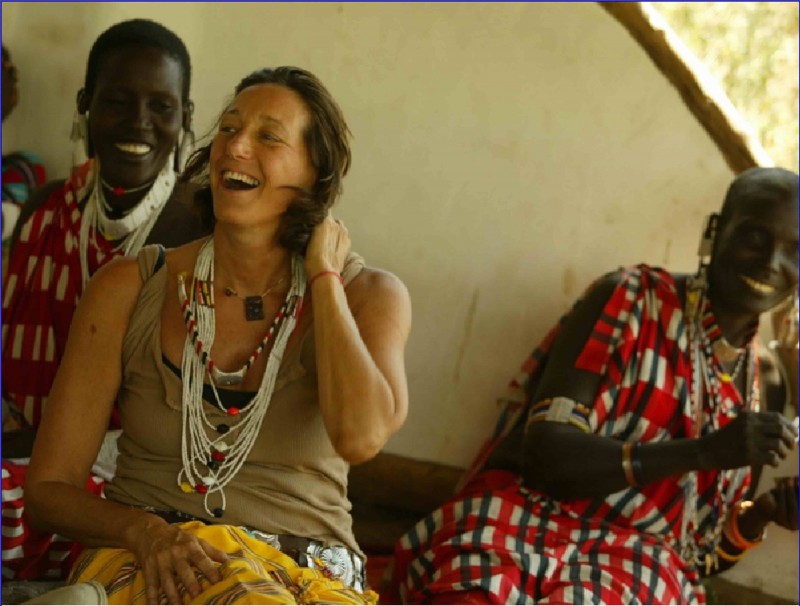
Photo Credit: Donna Karan
And of course, as with everything else, the program grew from Karan’s own experiences and needs. She’s spent her fair share of time in hospitals, after all. “I do need a lot of body work,” she admits. “I, unfortunately, have a bone-density problem. I break my bones a lot. I fall, I walk into stones. I was skiing and I broke both my knees, and then my ankles and feet just went numb.”
Currently, she’s still suffering. “I have two bad fingers right now,” she says. “I had just fallen in Israel, and I had six screws put in my knuckle. I’m recovering from that, and then also broke my pinky. It’s not very comfortable, but I’m used to it. So many people are used to me going down a runway in a wheelchair or on crutches that it’s the norm. I have to laugh about it, because if I don’t… ”
She trails off, because “don’t,” “won’t” and “no” are unthinkable—the words simply aren’t in her vocabulary. The designer is endlessly positive, unfailingly chatty and a complete contradiction in study. Which, by the way, she’s aware of and will be the first to point out.
In addition to the paradox of being a fashion designer who wears the same uniform on the daily, one moment she swears (like the good, native New Yorker that she is) that she never, ever gets bored of black, and then a heartbeat later says, “Well, only in the summer I do. Sometimes.” And then there’s this: “I hate getting dressed in the morning,” she confesses. “I’m really bad at that. I seriously know how to get dressed in five minutes—and do my makeup that way, too. You can look at me in one way, and then five minutes later, it’s like, ‘I’m ready for the runway!’”
Having her glam down to a science means that she can focus her time on more important things, like racing around to make the world a more beautiful place, by supporting her daughter, Gabby Karan de Felice and son-in-law Gianpaolo de Felice’s business venture in the Hamptons, Tutto Il Giorno, and by focusing on the relocation of her Urban Zen boutique in The Hamptons to a more prominent spot on Sag Harbor’s Main Street.
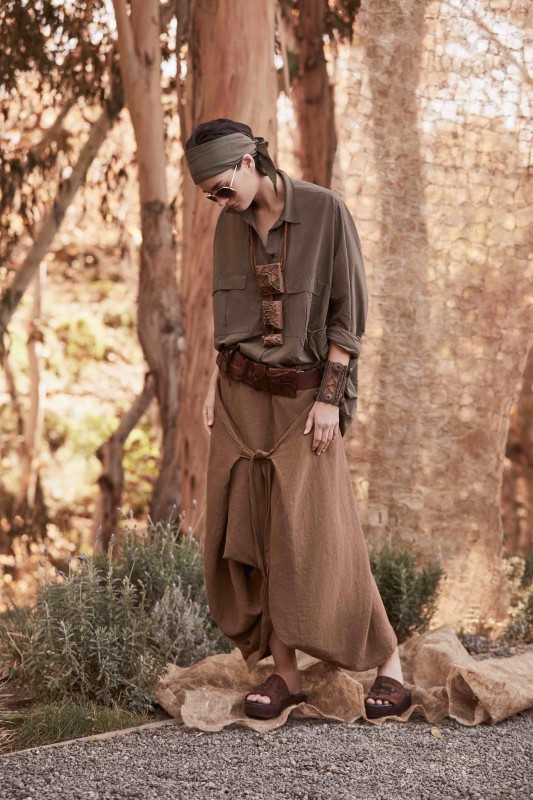
Photo Credit: Donna Karan
“Time is life’s biggest luxury,” she confides. “The things you really love, and soulfully love, are the most important things in life.”
That said, making time for her family is everything. She still manages to make time for herself on the daily—she rarely leaves the house before 11 a.m. in order to start her day with Pilates, meditation and a bath—but family comes first, hands-down. “I don’t care what’s happening in the world, I’m there just watching my granddaughter on her horse every single weekend,” she declares. “That’s how I spend my weekends now: The kids come first.” Her granddaughter, Stefania, even takes precedence over yoga—which, as many know, Karan’s sun (salute) has been rising and setting on for over 50 years. “I started yoga when I was 18, though of course, I’m only 23 now,” she jokes. “I’m like a little kid; I’m still a child at heart.”







